Fleurs du Mal Magazine


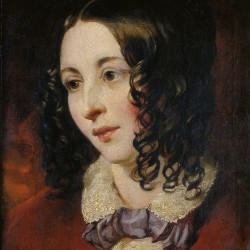
Song for the New Year
Old Time has turned another page
Of eternity and truth;
He reads with a warning voice to age,
And whispers a lesson to youth.
A year has fled o’er heart and head
Since last the yule log burnt;
And we have a task to closely ask,
What the bosom and brain have learnt?
Oh! let us hope that our sands have run
With wisdom’s precious grains;
Oh! may we find that our hands have done
Some work of glorious pains.
Then a welcome and cheer to the merry new year,
While the holly gleams above us;
With a pardon for the foes who hate,
And a prayer for those who love us.
We may have seen some loved ones pass
To the land of hallow’d rest;
We may miss the glow of an honest brow
And the warmth of a friendly breast:
But if we nursed them while on earth,
With hearts all true and kind,
Will their spirits blame the sinless mirth
Of those true hearts left behind?
No, no! it were not well or wise
To mourn with endless pain;
There’s a better world beyond the skies,
Where the good shall meet again.
Then a welcome and cheer to the merry new year,
While the holly gleams above us;
With a pardon for the foes who hate,
And a prayer for those who love us.
Have our days rolled on serenely free
From sorrow’s dim alloy?
Do we still possess the gifts that bless
And fill our souls with joy?
Are the creatures dear still clinging near?
Do we hear loved voices come?
Do we gaze on eyes whose glances shed
A halo round our home?
Oh, if we do, let thanks be pour’d
To Him who hath spared and given,
And forget not o’er the festive board
The mercies held from heaven.
Then a welcome and cheer to the merry new year,
While the holly gleams above us;
With a pardon for the foes who hate,
And a prayer for those who love us.
Eliza Cook
(1818 – 1889)
Song for the New Year
•fleursdumal.nl magazine
January 01, 2025
More in: # Classic Poetry Archive, Archive C-D, Archive C-D
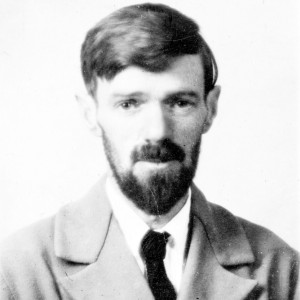
New Year’s Eve
There are only two things now,
The great black night scooped out
And this fire-glow.
This fire-glow, the core,
And we the two ripe pips
That are held in store.
Listen, the darkness rings
As it circulates round our fire.
Take off your things.
Your shoulders, your bruised throat!
Your breasts, your nakedness!
This fiery coat!
As the darkness flickers and dips,
As the fireflight falls and leaps
From your feet to your lips!
D. H. Lawrence
(1885 – 1930)
New Year’s Eve
•fleursdumal.nl magazine
December 31, 2024
More in: 4SEASONS#Winter, Archive K-L, Archive K-L, D.H. Lawrence, Lawrence, D.H.

Arbeiterstadt
Bij het gelijknamige schilderij uit 1920 van Hans Baluschek
De wisselwachter van het verdriet gokt liever
niet, is beducht voor de ruigte der verbeelding
waarin geruisloos de onhandzame leegte van
vrede verkruimelt. Ineens is daar een wrede
schrik: de steekvlam van het besef dat hij zijn
moeder nimmer hardop heeft horen lachen.
Bert Bevers
Arbeiterstadt
•fleursdumal.nl magazine
More in: Archive A-B, Archive A-B, Bevers, Bert, FDM in Berlin
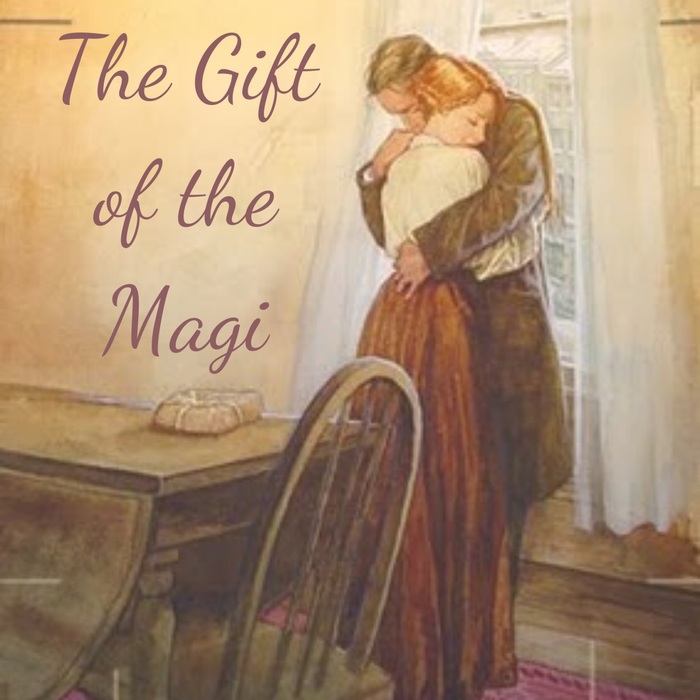
O. Henry (William Sydney Porter):
The Gift of the Magi
A Christmas story
One dollar and eighty-seven cents. That was all. And sixty cents of it was in pennies. Pennies saved one and two at a time by bulldozing the grocer and the vegetable man and the butcher until one’s cheeks burned with the silent imputation of parsimony that such close dealing implied. Three times Della counted it. One dollar and eighty-seven cents. And the next day would be Christmas.
There was clearly nothing left to do but flop down on the shabby little couch and howl. So Della did it. Which instigates the moral reflection that life is made up of sobs, sniffles, and smiles, with sniffles predominating.
While the mistress of the home is gradually subsiding from the first stage to the second, take a look at the home. A furnished flat at $8 per week. It did not exactly beggar description, but it certainly had that word on the look-out for the mendicancy squad.
In the vestibule below was a letter-box into which no letter would go, and an electric button from which no mortal finger could coax a ring. Also appertaining thereunto was a card bearing the name “Mr. James Dillingham Young.”
The “Dillingham” had been flung to the breeze during a former period of prosperity when its possessor was being paid $30 per week. Now, when the income was shrunk to $20, the letters of “Dillingham” looked blurred, as though they were thinking seriously of contracting to a modest and unassuming D. But whenever Mr. James Dillingham Young came home and reached his flat above he was called “Jim” and greatly hugged by Mrs. James Dillingham Young, already introduced to you as Della. Which is all very good.
Della finished her cry and attended to her cheeks with the powder rag. She stood by the window and looked out dully at a grey cat walking a grey fence in a grey backyard. To-morrow would be Christmas Day, and she had only $1.87 with which to buy Jim a present. She had been saving every penny she could for months, with this result. Twenty dollars a week doesn’t go far. Expenses had been greater than she had calculated. They always are. Only $1.87 to buy a present for Jim. Her Jim. Many a happy hour she had spent planning for something nice for him. Something fine and rare and sterling–something just a little bit near to being worthy of the honour of being owned by Jim.
There was a pier-glass between the windows of the room. Perhaps you have seen a pier-glass in an $8 Bat. A very thin and very agile person may, by observing his reflection in a rapid sequence of longitudinal strips, obtain a fairly accurate conception of his looks. Della, being slender, had mastered the art.
Suddenly she whirled from the window and stood before the glass. Her eyes were shining brilliantly, but her face had lost its colour within twenty seconds. Rapidly she pulled down her hair and let it fall to its full length.
Now, there were two possessions of the James Dillingham Youngs in which they both took a mighty pride. One was Jim’s gold watch that had been his father’s and his grandfather’s. The other was Della’s hair. Had the Queen of Sheba lived in the flat across the airshaft, Della would have let her hair hang out of the window some day to dry just to depreciate Her Majesty’s jewels and gifts. Had King Solomon been the janitor, with all his treasures piled up in the basement, Jim would have pulled out his watch every time he passed, just to see him pluck at his beard from envy.
So now Della’s beautiful hair fell about her, rippling and shining like a cascade of brown waters. It reached below her knee and made itself almost a garment for her. And then she did it up again nervously and quickly. Once she faltered for a minute and stood still while a tear or two splashed on the worn red carpet.
On went her old brown jacket; on went her old brown hat. With a whirl of skirts and with the brilliant sparkle still in her eyes, she cluttered out of the door and down the stairs to the street.
Where she stopped the sign read: “Mme Sofronie. Hair Goods of All Kinds.” One Eight up Della ran, and collected herself, panting. Madame, large, too white, chilly, hardly looked the “Sofronie.”
“Will you buy my hair?” asked Della.
“I buy hair,” said Madame. “Take yer hat off and let’s have a sight at the looks of it.”
Down rippled the brown cascade.
“Twenty dollars,” said Madame, lifting the mass with a practised hand.
“Give it to me quick” said Della.
Oh, and the next two hours tripped by on rosy wings. Forget the hashed metaphor. She was ransacking the stores for Jim’s present.
She found it at last. It surely had been made for Jim and no one else. There was no other like it in any of the stores, and she had turned all of them inside out. It was a platinum fob chain simple and chaste in design, properly proclaiming its value by substance alone and not by meretricious ornamentation–as all good things should do. It was even worthy of The Watch. As soon as she saw it she knew that it must be Jim’s. It was like him. Quietness and value–the description applied to both. Twenty-one dollars they took from her for it, and she hurried home with the 78 cents. With that chain on his watch Jim might be properly anxious about the time in any company. Grand as the watch was, he sometimes looked at it on the sly on account of the old leather strap that he used in place of a chain.
When Della reached home her intoxication gave way a little to prudence and reason. She got out her curling irons and lighted the gas and went to work repairing the ravages made by generosity added to love. Which is always a tremendous task dear friends–a mammoth task.
Within forty minutes her head was covered with tiny, close-lying curls that made her look wonderfully like a truant schoolboy. She looked at her reflection in the mirror long, carefully, and critically.
“If Jim doesn’t kill me,” she said to herself, “before he takes a second look at me, he’ll say I look like a Coney Island chorus girl. But what could I do–oh! what could I do with a dollar and eighty-seven cents?”
At 7 o’clock the coffee was made and the frying-pan was on the back of the stove hot and ready to cook the chops.
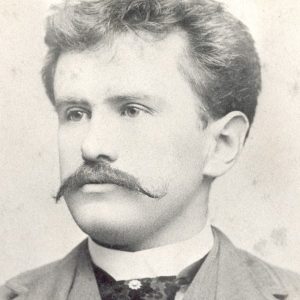
Jim was never late. Della doubled the fob chain in her hand and sat on the corner of the table near the door that he always entered. Then she heard his step on the stair away down on the first flight, and she turned white for just a moment. She had a habit of saying little silent prayers about the simplest everyday things, and now she whispered: “Please, God, make him think I am still pretty.”
The door opened and Jim stepped in and closed it. He looked thin and very serious. Poor fellow, he was only twenty-two–and to be burdened with a family! He needed a new overcoat and he was with out gloves.
Jim stepped inside the door, as immovable as a setter at the scent of quail. His eyes were fixed upon Della, and there was an expression in them that she could not read, and it terrified her. It was not anger, nor surprise, nor disapproval, nor horror, nor any of the sentiments that she had been prepared for. He simply stared at her fixedly with that peculiar expression on his face.
Della wriggled off the table and went for him.
“Jim, darling,” she cried, “don’t look at me that way. I had my hair cut off and sold it because I couldn’t have lived through Christmas without giving you a present. It’ll grow out again–you won’t mind, will you? I just had to do it. My hair grows awfully fast. Say ‘Merry Christmas!’ Jim, and let’s be happy. You don’t know what a nice-what a beautiful, nice gift I’ve got for you.”
“You’ve cut off your hair?” asked Jim, laboriously, as if he had not arrived at that patent fact yet, even after the hardest mental labour.
“Cut it off and sold it,” said Della. “Don’t you like me just as well, anyhow? I’m me without my hair, ain’t I?”
Jim looked about the room curiously.
“You say your hair is gone?” he said, with an air almost of idiocy.
“You needn’t look for it,” said Della. “It’s sold, I tell you–sold and gone, too. It’s Christmas Eve, boy. Be good to me, for it went for you. Maybe the hairs of my head were numbered,” she went on with a sudden serious sweetness, “but nobody could ever count my love for you. Shall I put the chops on, Jim?”
Out of his trance Jim seemed quickly to wake. He enfolded his Della. For ten seconds let us regard with discreet scrutiny some inconsequential object in the other direction. Eight dollars a week or a million a year–what is the difference? A mathematician or a wit would give you the wrong answer. The magi brought valuable gifts, but that was not among them. This dark assertion will be illuminated later on.
Jim drew a package from his overcoat pocket and threw it upon the table.
“Don’t make any mistake, Dell,” he said, “about me. I don’t think there’s anything in the way of a haircut or a shave or a shampoo that could make me like my girl any less. But if you’ll unwrap that package you may see why you had me going a while at first.”
White fingers and nimble tore at the string and paper. And then an ecstatic scream of joy; and then, alas! a quick feminine change to hysterical tears and wails, necessitating the immediate employment of all the comforting powers of the lord of the flat.
For there lay The Combs–the set of combs, side and back, that Della had worshipped for long in a Broadway window. Beautiful combs, pure tortoise-shell, with jewelled rims–just the shade to wear in the beautiful vanished hair. They were expensive combs, she knew, and her heart had simply craved and yearned over them without the least hope of possession. And now, they were hers, but the tresses that should have adorned the coveted adornments were gone.
But she hugged them to her bosom, and at length she was able to look up with dim eyes and a smile and say: “My hair grows so fast, Jim!”
And then Della leaped up like a little singed cat and cried, “Oh, oh!”
Jim had not yet seen his beautiful present. She held it out to him eagerly upon her open palm. The dull precious metal seemed to flash with a reflection of her bright and ardent spirit.
“Isn’t it a dandy, Jim? I hunted all over town to find it. You’ll have to look at the time a hundred times a day now. Give me your watch. I want to see how it looks on it.”
Instead of obeying, Jim tumbled down on the couch and put his hands under the back of his head and smiled.
“Dell,” said he, “let’s put our Christmas presents away and keep ’em a while. They’re too nice to use just at present. I sold the watch to get the money to buy your combs. And now suppose you put the chops on.”
The magi, as you know, were wise men–wonderfully wise men-who brought gifts to the Babe in the manger. They invented the art of giving Christmas presents. Being wise, their gifts were no doubt wise ones, possibly bearing the privilege of exchange in case of duplication. And here I have lamely related to you the uneventful chronicle of two foolish children in a flat who most unwisely sacrificed for each other the greatest treasures of their house. But in a last word to the wise of these days let it be said that of all who give gifts these two were the wisest. Of all who give and receive gifts, such as they are wisest. Everywhere they are wisest. They are the magi.
O. Henry
(William Sydney Porter 1862 – 1910)
This story was originally published on Dec 10, 1905 in The New York Sunday World as “Gifts of the Magi.” It was subsequently published as The Gift of the Magi in O. Henry’s 1906 short story collection The Four Million.
• fleursdumal.nl magazine
More in: Archive G-H, Henry, O., PRESS & PUBLISHING, Western Fiction

A Cry from an Indian Wife
My Forest Brave, my Red-skin love, farewell;
We may not meet to-morrow; who can tell
What mighty ills befall our little band,
Or what you’ll suffer from the white man’s hand?
Here is your knife! I thought ’twas sheathed for aye.
No roaming bison calls for it to-day;
No hide of prairie cattle will it maim;
The plains are bare, it seeks a nobler game:
’Twill drink the life-blood of a soldier host.
Go; rise and strike, no matter what the cost.
Yet stay. Revolt not at the Union Jack,
Nor raise Thy hand against this stripling pack
Of white-faced warriors, marching West to quell
Our fallen tribe that rises to rebel.
They all are young and beautiful and good;
Curse to the war that drinks their harmless blood.
Curse to the fate that brought them from the East
To be our chiefs—to make our nation least
That breathes the air of this vast continent.
Still their new rule and council is well meant.
They but forget we Indians owned the land
From ocean unto ocean; that they stand
Upon a soil that centuries agone
Was our sole kingdom and our right alone.
They never think how they would feel to-day,
If some great nation came from far away,
Wresting their country from their hapless braves,
Giving what they gave us—but wars and graves.
Then go and strike for liberty and life,
And bring back honour to your Indian wife.
Your wife? Ah, what of that, who cares for me?
Who pities my poor love and agony?
What white-robed priest prays for your safety here,
As prayer is said for every volunteer
That swells the ranks that Canada sends out?
Who prays for vict’ry for the Indian scout?
Who prays for our poor nation lying low?
None—therefore take your tomahawk and go.
My heart may break and burn into its core,
But I am strong to bid you go to war.
Yet stay, my heart is not the only one
That grieves the loss of husband and of son;
Think of the mothers o’er the inland seas;
Think of the pale-faced maiden on her knees;
One pleads her God to guard some sweet-faced child
That marches on toward the North-West wild.
The other prays to shield her love from harm,
To strengthen his young, proud uplifted arm.
Ah, how her white face quivers thus to think,
Your tomahawk his life’s best blood will drink.
She never thinks of my wild aching breast,
Nor prays for your dark face and eagle crest
Endangered by a thousand rifle balls,
My heart the target if my warrior falls.
O! coward self I hesitate no more;
Go forth, and win the glories of the war.
Go forth, nor bend to greed of white men’s hands,
By right, by birth we Indians own these lands,
Though starved, crushed, plundered, lies our nation low . . .
Perhaps the white man’s God has willed it so.
Emily Pauline Johnson
(1861 – 1913)
A Cry from an Indian Wife
Poem
• fleursdumal.nl magazine
More in: # Classic Poetry Archive, *Archive Native American Literature, Archive I-J, Archive I-J, Emily Pauline Johnson, Racism
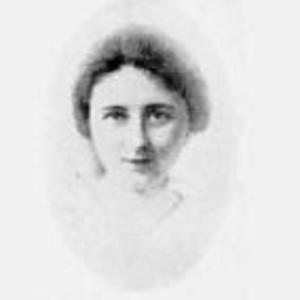
Bluebird
there’s a bluebird in my heart that
wants to get out
but I’m too tough for him,
I say, stay in there, I’m not going
to let anybody see
you.
there’s a bluebird in my heart that
wants to get out
but I pour whiskey on him and inhale
cigarette smoke
and the whores and the bartenders
and the grocery clerks
never know that
he’s
in there.
there’s a bluebird in my heart that
wants to get out
but I’m too tough for him,
Lesbia Harford
(1891-1927)
Bluebird
• fleursdumal.nl magazine
More in: Archive G-H, Archive G-H, Feminism, Harford, Lesbia, Workers of the World
Pauline Peyrade: “L’Âge de détruire”, une tragédie en prose
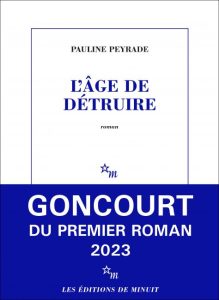
Pauline Peyrade est née en 1986. Elle est l’auteure de sept pièces de théâtre aux Solitaires intempestifs – jouées et traduites en sept langues. Elle a reçu le prix Bernard-Marie Koltès pour Poings en 2019 et le Grand Prix de Littérature dramatique Artcena pour À la carabine en 2021. L’Âge de détruire est son premier roman pour lequel elle obtient le Goncourt du premier roman en 2023.
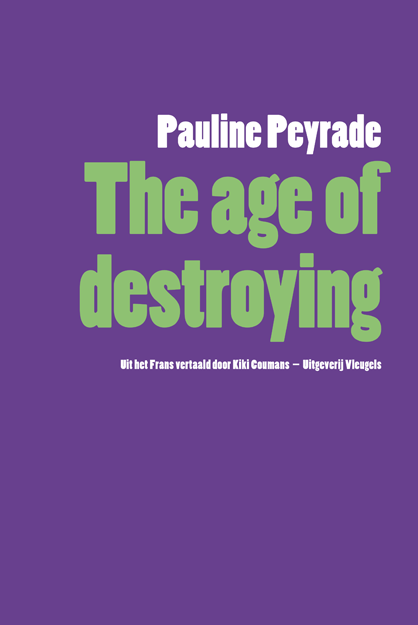
Bibliographie (extrait) :
* Ctrl-X suivi de Bois impériaux, théâtre (Les Solitaires intempestifs, 2016).
* Poings, théâtre (Les Solitaires intempestifs, 2017).
* Portrait d’une sirène suivi de Princesse de pierre – Rouge dents – Carosse (Les Solitaires intempestifs, 2019).
* A la carabine suivi de Cheveux d’été, théâtre (Les Solitaires intempestifs, 2020).
* L’Age de détruire, roman (Minuit, 2023).
Pauline Peyrade
L’Âge de détruire
2023
160 pages
ISBN: 9782707348197
Editions de Minuit
€ 16.00
Pauline Peyrade
The age of destroying
2023
Vertaling: Kiki Coumans
120 pagina’s
ISBN: 978 94 93186 90 3
Uitgeverij Vleugels
€ 24,50
• fleursdumal.nl magazine
More in: - Book News, - Bookstores, Archive O-P, Awards & Prizes

‘Easter 1916’.
Too long a sacrifice
Can make a stone of the heart.
O when may it suffice?
That is Heaven’s part, our part
To murmur name upon name,
As a mother names her child
When sleep at last has come
On limbs that had run wild.
What is it but nightfall?
No, no, not night but death;
Was it needless death after all?
W.B. Yeats
(1865—1939)
‘Easter 1916’
• fleursdumal.nl magazine
More in: *War Poetry Archive, Archive Y-Z, Archive Y-Z, Yeats, William Butler
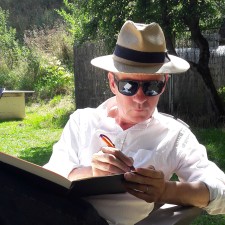
Nostalgie
Jouw zwijgen vult mijn leegte niet.
Er komt geen eind aan het verdriet.
Hoe vaak je Heideggèr of Héraclite
deconstrueren kan, ik weet het niet.
Er komt geen eind aan het verdriet.
Jouw zwijgen vult mijn leegte niet.
Paul Bezembinder
Nostalgie
Gedicht
• fleursdumal.nl magazine
More in: Archive A-B, Archive A-B, Bezembinder, Paul
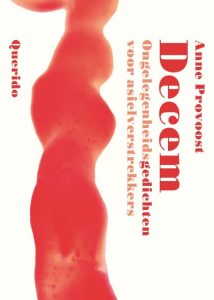 Een jongeman meent zich alles nog te herinneren: hij stapte in een bootje op zoek naar een land met een tandarts, zijn vrouw bleef in het water achter en werd door vissers begraven, en er was ook nog ergens een kind.
Een jongeman meent zich alles nog te herinneren: hij stapte in een bootje op zoek naar een land met een tandarts, zijn vrouw bleef in het water achter en werd door vissers begraven, en er was ook nog ergens een kind.
Door de shock verliest hij het zicht op de gebeurtenissen, maar zijn verblijfsvergunning hangt af van hoe geloofwaardig zijn rouw klinkt.
In een reeks ongelegenheidsgedichten veegt hij zijn ondervragers met cynische precisie de mantel uit.
Decem
Ongelegenheidsgedichten voor asielverstrekkers
Auteur: Anne Provoost
Poëzie
Bindwijze: Paperback
80 pagina’s
Druk 1e
Taal: Nederlands
Uitgeverij: Querido
NUR: 306
Paperback
ISBN: 9789025317836
Publicatiedatum: 26-09-2024
Prijs: € 20,00
• fleursdumal.nl magazine
More in: #Modern Poetry Archive, - Book News, - Bookstores, Archive O-P, Archive O-P
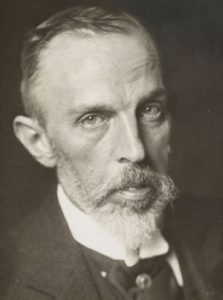
O, als ik dood zal zijn
“O, als ik dood zal, dood zal zijn
kom dan en fluister, fluister iets liefs,
mijn bleeke ogen zal ik opslaan
en ik zal niet verwonderd zijn.
En ik zal niet verwonderd zijn ;
in deze liefde zal de dood
alleen een slapen, slapen gerust
een wachten op u, een wachten zijn.”
En schokkende het grote zwichten
en armen die in vertwijfeling slaan,
een wringen omhoog, een biddend reiken,
een klemmen en jammerend laten gaan.
En een hoofd verwordende en bedolven
in der snikken en in der haren nacht,
wond over ondoorgrondlijke stroomen
vervreemd en doodswit opgebracht.
En een stem verwezen en ingezonken
en die nog stervende aanbad:
ik heb zoo zielsveel van je gehouden,
ik heb je zoo lief, zoo lief gehad.
J.H. Leopold
(1865-1925)
O, als ik dood zal zijn
• fleursdumal.nl magazine
More in: Archive K-L, Archive K-L, Leopold, J.H.

Na de dag
Het licht heeft je gezicht verweerd
en de marok wil met je aan de haal,
barok wordt rococo, de wijn creëert
de tralies voor de panter van de taal.
De wind steekt op, sirocco of simoem,
rhizomen worden schaars, de gentiaan
verdorst, de iris wordt een zonnebloem
en aan de hemel dient de maan zich aan.
Paul Bezembinder
Na de dag
Gedicht
Paul Bezembinder studeerde theoretische natuurkunde in Nijmegen. In zijn poëzie zoekt hij vooral in klassieke versvormen en thema’s naar de balans tussen serieuze poëzie, pastiche en smartlap. Bij uitgeverij Leeuwenhof (Oostburg) verschenen de bundels Gedichten (2020), Parkzicht (2020) en Duizelingen (2022). Website: www.paulbezembinder.nl.
• fleursdumal.nl magazine
More in: Archive A-B, Archive A-B, Bezembinder, Paul
Thank you for reading Fleurs du Mal - magazine for art & literature